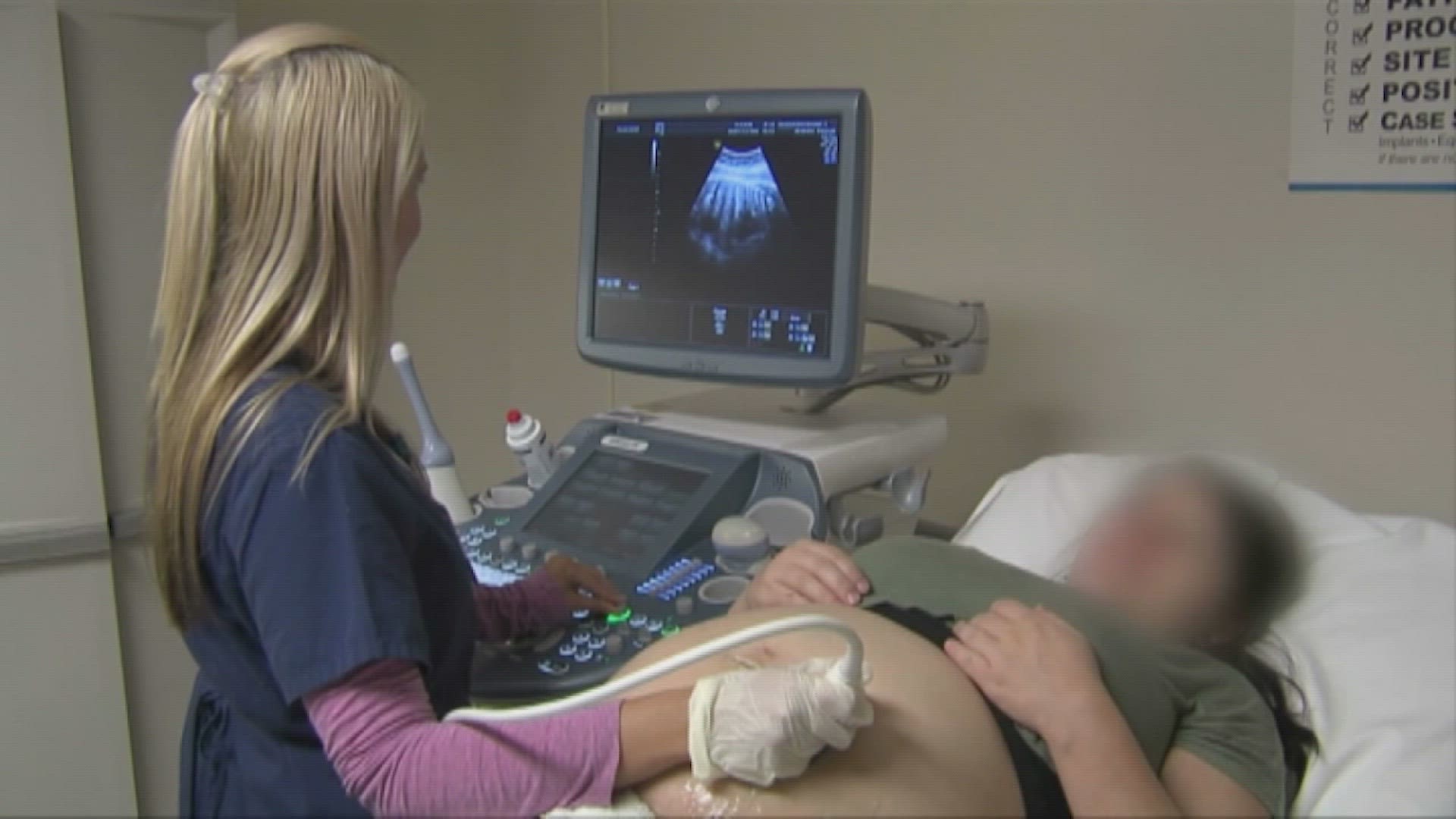HUNTSVILLE, Ala. — The Alabama Department of Public Health (ADPH) announce newborn screening began for two additional treatable genetic disorders. Newborn screening can alert healthcare providers to the potential for a condition that is typically not apparent at birth. "There are different types of tests," Dr. Wes Stubblefield, Medical officer for ADPH said. "The tests that we do in the Bureau of Clinical Laboratories as part of the newborn screening program are testing for genetic conditions but we're not doing exactly doing genetic testing. We're doing so we're looking for is a certain evidence of genetic disorders based on laboratory testing."
With a simple blood screen and treatment, most affected babies have the opportunity to avoid death and disability and grow up healthy and develop normally. "We currently screen for 59 core and secondary conditions through what's called our drive blood spot, which is a small drop of blood that's taken from the heel and placed on a piece of paper," Stubblefield shares. " It also includes testing for heart disease and also for early hearing problems, all of which is done right after birth."
The new disorders added to Alabama's newborn screening panel are described as follows:
X-linked Adrenoleukodystrophy (X-ALD) is a rare genetic disorder caused by a change in a single gene that affects males. X-ALD happens when certain fats cannot be broken down in the body. The fats build up and cause health problems including damage to the nervous system and adrenal glands. Possible treatments for X-ALD include supportive therapies (such as physical therapy), steroid treatment, and stem cell transplant.
Adenosine Deaminase Deficiency for Severe Combined Immunodeficiency (ADA-SCID) is an inherited disorder that damages the immune system. Individuals with ADA-SCID lack all immune protection from bacteria, viruses and fungi. It can be deadly in childhood because of severe recurrent infections. Gene therapy, bone marrow transplantation or enzyme replacement therapy may be effective for treating ADA-SCID if started early.
"So, these two new conditions are ones that are recommended to be on the screening panel by the Health and Human Services Division," Stubblefield shares. " Our goal is to stay up to date with the recommended panel of tests that HHS recommends."
Close coordination is needed for newborn screening follow-up. For these two conditions, the ADPH is partnering with the University of Alabama at Birmingham to evaluate and to confirm diagnosis, and ADPH provides information to healthcare providers and families for appropriate treatment.
"These tests are very good, but obviously it's much better than, of course, not having a diagnosis at all," Stubblefield shares. "These tests were invented and before they were marketed and in FDA approved, it would come down to kids showing symptoms in many by the time they show symptoms, many times irreparable damage has been done to the body or the brain and so the goal is to is to if there is something to be done that we do it quickly and we do it as quickly after birth as possible."
The ADPH Bureau of Clinical Laboratories is the sole provider of blood analysis of newborn screening in Alabama. The Alabama Newborn Screening Program identifies approximately 200 babies each year with a metabolic, endocrine, hematological, or other congenital disorder. These babies usually look and act healthy at birth.
For additional information please visit the Advisory Committee on Heritable Disorders in Newborns and Children.

